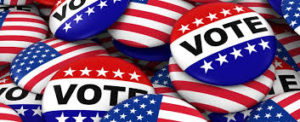All Connecticut residents who have registered to vote will be allowed to cast absentee ballots in the Aug. 11 primary elections.
 Gov. Ned Lamont has signed an executive order that overrides state law due to the COVID-19 pandemic ”“ a move that Senate Minority Leader Len Fasano (R-North Haven) said violates the Constitution.
Gov. Ned Lamont has signed an executive order that overrides state law due to the COVID-19 pandemic ”“ a move that Senate Minority Leader Len Fasano (R-North Haven) said violates the Constitution.
The state law authorizes the use of an absentee ballot in cases where a voter is actively serving in the U.S. Armed Forces; absent from town during all of the hours of voting; has an illness; observes religious practices preventing them from voting in person on the specified day; serves as an election official; and has a physical disability.
Lamont said that as the highly contagious virus continues to spread ”“ and over 3,500 residents who have contracted the disease have died within the last two months ”“ it was necessary that state government make adjustments that reflect the current state of emergency while ensuring that the democratic process continues safely and securely.
“Nobody should need to make a decision between their health and their right to vote,” the governor said. “We must guarantee access to the ballot, and this is a way to do that during these extraordinary circumstances. I do not take this decision lightly, and it is with the public health and welfare of residents in mind.”
Earlier this month, Secretary of the State Denise Merrill announced that she would mail absentee ballots available to all registered voters for the Aug. 11 primary and Nov. 3 general election. Voters need to fill out the application, and return it via postage-paid return envelope that will be included, in order to receive an absentee ballot.
Once approved, each voter will then receive a ballot in the mail, also with a postage-paid return envelope. Each town will also have a secure drop box in a prominent location to allow voters to deliver their absentee ballots in person without close personal contact.
Connecticut”™s 2020 presidential primary was initially scheduled to be held on April 28, but to reduce the risk of transmission of COVID-19, Gov. Lamont signed executive orders rescheduling it, first to June 2 and then to Aug. 11 ”“ the same date that the state was already scheduled to hold primaries for other federal, state and local offices.
In response, Fasano said that while he understood the need for absentee ballots by vulnerable populations and those with preexisting conditions, “the governor’s executive order is not simply addressing those vulnerable groups. The proposed process raises significant questions of constitutionality and questions related to the security of unattended drop boxes that would be used to collect ballots.”
Constitutional protections “cannot be eviscerated by the stroke of a pen,” Fasano said. “No matter how much we may want to waive the language of the Constitution given the COVID-19 health crisis, we are bound to the documents that created our country and state and cannot legally do that.”
The senator also questioned the use of unattended outside drop boxes, maintaining that the practice “contradicts state law, which requires in-person return of absentee ballots for security purposes and to protect the integrity of the voting system.
“I strongly believe this policy must be revised and replaced with more secure methods for in-person ballot returns for those who find themselves in the unfortunate position of not being able to mail a ballot and not being comfortable walking into a clerk’s office, such as waiting in their car outside the clerk’s office, calling the clerk and having a runner meet them at their car,” Fasano said. “At the very least, drop boxes need to be located within a town clerks’ office which will act as a deterrent for untoward activity and place them in view of watchful eyes on election day.”


















